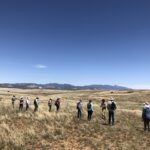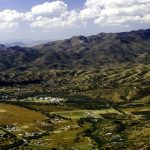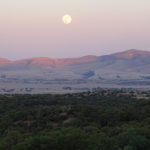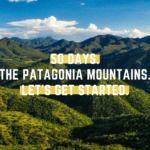Our news feeds picked up this story. It begins…
“A peasant town in central Mexico has declared war on the world’s richest man, Carlos Slim, to prevent him from operating a gold and silver mine that threatens the environment.”
With just that line, those of us here in Patagonia are shaking our heads and thinking, “yeah, we know how that goes.” But this story has shades of differences compared to ours. First off, the mining company Mr. Slim owns, Minera Frisco, is not a foreign company, (The companies wanting to mine our mountains are Candadian and Australian.) it’s actually Mexican. Their Wikepedia page says: : “Minera Frisco (BMV: MFRISCO) is a Mexican mining company that engages in the exploration, exploitation, production, and trade of mineral deposits in Mexico and internationally.” Not sure who wrote that, but I personally love that they fit the word ‘exploitation’ in there. So instead of a foreign company destroying the land with toxic wastes, it’s destruction from within. Not better or worse, still descpicable.
Secondly, it’s the poor people, the campesinos (peasants as they’re called in this article) that have organized and risen up against Mr. Big Bad Slim Wolf. They depend on the land, the air, the water, and they know that this mine will destroy their lives. They GET IT.
“We are not afraid to take on a gentleman who is so poor that the only thing he has is money. They will commit ecocide and genocide because they will pollute our rivers, from which we drink water, with mercury,” said the president of the grassroots organization Tetela Hacia el Futuro, German Romero.
“So poor that the only thing he has is money.” WOW. I’m asking myself, why the people in Tetela de Ocampo, a community of campesinos who are arguably poorer – economically – than most of our population here in Patagonia see it that way instead of being willing to sell out their environment for the promise of jobs? What’s the difference between those people, that community, and ours?
Minera Frisco “is a company that picked the wrong place,” resident Hector Lazaro said. “We don’t want its money or its jobs.”
Maybe part of the reason is that we – PARA – have not done a good enough job in educating our community about the real and certain dangers of destruction to our mountains, our watershed and our town. Part of it also lies in the fact that the campesinos in Tetela de Ocampo do have ‘jobs’ already. According to the article, it’s a town of 25,000 residents who grow apples, peaches, chili peppers and hydroponic tomatoes.” As I said, they depend on clean soil, water and air.
Another difference is that here we are forced to play the game of ‘negotiating’. It’s what we’re told we have to do by the USFS. We have to suggest mitigation – ways in which the mining companies can make their toxins not quite so toxic. But in Tetela de Ocampo they don’t go in for that absurdity.
There will be no negotiations with Minera Frisco over the permits for a change of use or the license for the mine, Tetela de Ocampo Mayor Marco Antonio Uribe told Efe.
“For us, there is no price they can pay to bring misfortune to our people,” Uribe said.
They don’t want ‘better’ leach ponds or tailing piles moved from here to there. They don’t want no stinking mine AT ALL.
And that’s just how we feel. The mining companies can puke out all the lies they want about ‘new technologies’, and ‘sustainability’. But they know they’re lies and so do we. We here at PARA, along with the rest of a growing community of Watchdogs, stand united with the people of Tetela de Ocampo. May both our communities, along with all the other communities around the globe, be successful in standing up to these mining companies and preserving our eco-systems and our way of life.
Also watch this six minute PBS video about a Panamanian communities struggle: In Panama, ‘New Conquistadors’ Protest Canadian Copper Mines










